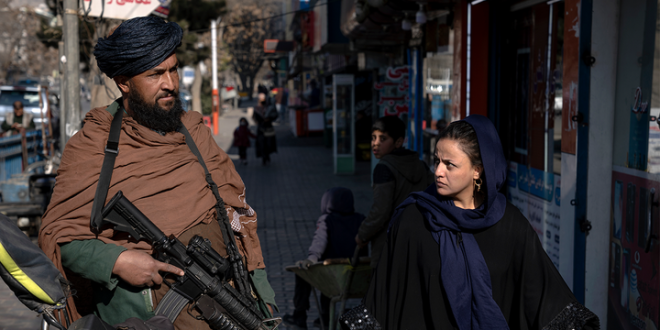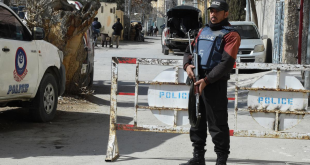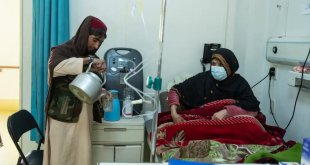AT News
KABUL – The Taliban have heightened its crackdown on women perceived to have violated the prescribed standards of ‘hijab,’ particularly in western Kabul. There has been a significant surge in detentions since October 2023 as morality police rigorously enforce a strict dress code, further tightening their grip on the lives of Afghan women.
A recent report by the United Nations Assistance Mission in Afghanistan exposes the alarming tactics employed by the Taliban’s Department for the Propagation of Virtue and the Prevention of Vice, where officials are visiting public spaces, offices, and educational institutions to ensure stringent compliance with hijab and other dress requirements. Notably, the escalation of arrests in western Kabul underscores the geographic spread of these oppressive measures, raising concerns about the pervasive reach of the morality police.
Roza Otunbayeva, Special Representative of the Secretary-General and head of UNAMA, expressed deep concern over the situation, emphasizing that the enforcement measures, often involving physical violence, are particularly demeaning and perilous for Afghan women and girls. Detentions under the pretext of ‘bad hijab’ not only carry an enormous stigma but also pose a serious threat to the safety and well-being of those targeted.
The intensified crackdown has stirred unrest within the international human rights community. Despite widespread acknowledgment of the unacceptability of Taliban abuses, there is a growing sense of frustration over the lack of a coherent and urgent global strategy to address the issue.
Heather Barr, Women’s Rights Associate Director for Human Rights Watch, commented on the international response, stating, “The international community is increasingly looking away and refusing to be aware of Taliban abuses.” The report paints a grim picture of the morality police instilling fear through the strict implementation of a dress code and morality laws, which have been in effect since the Taliban’s takeover in August 2021.
The Taliban’s oppressive measures extend beyond dress codes to restrict the rights of women in various aspects of life. Unmarried women or those without a male guardian face barriers to employment and accessing public services. Shockingly, the report details instances of female healthcare workers being detained merely for going to work without a male guardian.
Furthermore, the Taliban’s enforcement of the April 2022 hijab decree has led to arrests and detentions of women in Kabul and other cities. Women are typically released after several hours, contingent on a male relative signing a decree pledging compliance. The recent surge in arrests for ‘bad hijab’ has heightened concerns about the Taliban’s relentless crackdown on women’s rights.
As the situation continues to worsen, with no apparent end in sight, the lives of Afghan women and girls are becoming increasingly difficult each day. In the face of these challenges, some pro-democracy voices in Afghanistan are calling for greater U.S. and international assistance for the National Resistance Front (NRF), the primary opposition against the Taliban. However, these calls for intervention have yet to gain widespread support, leaving Afghan women grappling with the escalating threats to their rights and freedoms.
 Afghanistan Times
Afghanistan Times




